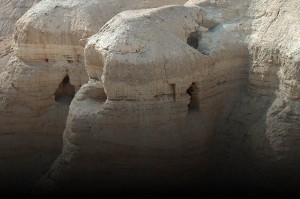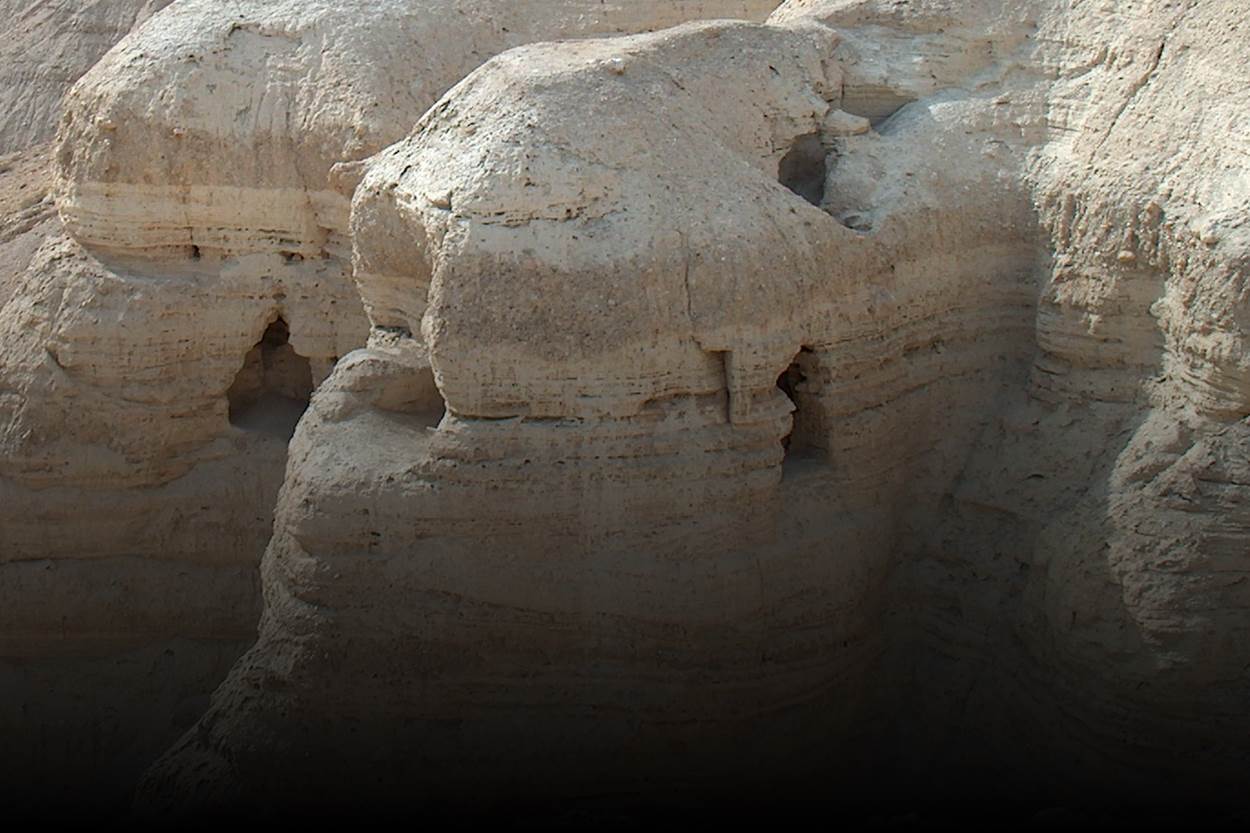
As it turns out, we can examine the competency of the ancient Jewish “Records Division” and test the ability of ancient scribes to accurately copy (and maintain) the Old Testament with a similar comparison. It’s clear the Jews guarded Scripture with extreme care and precision. The Old Testament Scriptures were revered and protected, largely because early believers considered them to be the holy Word of God. The Masoretic tradition gives us a glimpse into the obsessive care Jewish scribes historically took with their sacred texts. Scribes known as the Masoretes (a group of Jewish copyists living and working primarily in Tiberias and Jerusalem) took over the precise job of copying the ancient Scripture and transmitting it for later generations.
The discovery of the Dead Sea Scrolls in Qumran confirms their amazing ability. In 1947, a Bedouin herdsman found some unusual clay jars in caves near the valley of the Dead Sea. The jars contained a number of scrolls revealing the religious beliefs of monastic farmers who lived in the valley from 150 BC to AD 70. When this group saw the Romans invade the region, they apparently put their cherished scrolls in the jars and hid them in the caves. The Dead Sea Scrolls contain fragments of almost every book in the Old Testament, and most importantly, a complete copy of the book of Isaiah. This scroll was dated to approximately 100 BC; it was incredibly important to historians and textual experts because it was approximately one thousand years older than any Masoretic copy of Isaiah. The Dead Sea Scroll version of Isaiah allowed scholars to compare the text over this period of time to see if copyists had been conscientious. Scholars were amazed by what they discovered.
According to Gleason Archer (author of A Survey of Old Testament Introduction), a comparison of the Qumran manuscripts of Isaiah “proved to be word for word identical with our standard Hebrew Bible in more than 95 percent of the text.” Some of the 5 percent differences were simply a matter of spelling (like you might experience when using the word favor instead of favour). Some were grammatical differences (like the presence of the word and to connect two ideas or objects within a sentence). Finally, some were the addition of a word for the sake of clarity (like the addition of the Hebrew word for “light” to the end of verse 53:11, following “they shall see”). None of these grammatical variations changed the meaning of the text in any way.
What compelled the ancient scribes to treat these documents with such precision and meticulous care? It was clearly their belief the documents themselves were sacred and given to them by God. The ancient Jewish scribes didn’t have access to photocopiers, microfiche, or digital imaging like modern police-department Records Divisions do, but they understood the importance of Divine record keeping, and they used the first-century equivalent in technology (the meticulous tradition of their Masoretes) to carefully guarantee the accuracy of the texts. The ancient Jewish scribes didn’t have access to photocopiers, microfiche, or digital imaging, but they understood the importance of Divine record keeping. Share on X

J. Warner Wallace is a Dateline featured Cold-Case Detective, Senior Fellow at the Colson Center for Christian Worldview, Adj. Professor of Christian Apologetics at Talbot School of Theology, Biola University, author of Cold-Case Christianity, God’s Crime Scene, and Forensic Faith, and creator of the Case Makers Academy for kids.
Subscribe to J. Warner’s Daily Email
J. Warner Wallace is a Dateline featured cold-case homicide detective, popular national speaker and best-selling author. He continues to consult on cold-case investigations while serving as a Senior Fellow at the Colson Center for Christian Worldview. He is also an Adj. Professor of Christian Apologetics at Talbot School of Theology, Biola University, and a faculty member at Summit Ministries. He holds a BA in Design (from CSULB), an MA in Architecture (from UCLA), and an MA in Theological Studies (from Gateway Seminary).

































Pingback: Establishing the Reliability of the Old Testament: The Ardent Testimony of the Ancients | Cold Case Christianity
Pingback: A Brief Sample of Old Testament Archaeological Corroboration | Cold Case Christianity
Pingback: The Case for the Reliability of the Old Testament (Bible Insert) - Cross Examined - Christian Apologetics | Frank Turek
Pingback: The Case for the Reliability of the Old Testament (Bible Insert) | Apologetics ForumApologetics Forum
Pingback: The Case for the Reliability of the Old Testament (Bible Insert) | Truth2Freedom's Blog
Pingback: The Comparatively Rich Archaeological Corroboration of the Old Testament | Cold Case Christianity
Pingback: The Bible was Copied Too Much | Christianity But Really
Pingback: The Case for the Reliability of the Old Testament (Bible Insert) | Cold Case Christianity
Pingback: Dealing with complaints: Argument of “Telephone” | AgapeisRational
Pingback: Midweek Apologetics Roundup - Stephen J. Bedard
Pingback: Establishing the Reliability of the Old Testament: A Timely Test of Transmission | Cold Case Christianity – Elders Scrolls